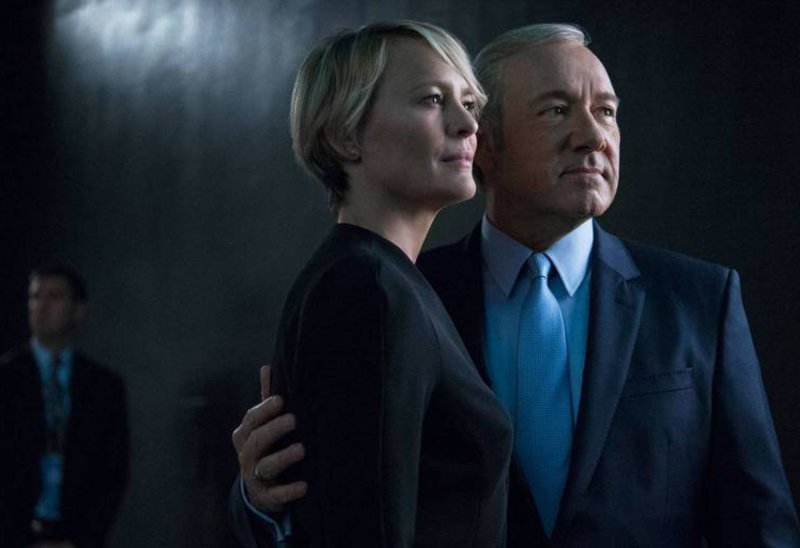els bastards
Now it’s Claire’s turn
Warning: This article contains minor spoilers for the fifth season of House of Cards.
A presidency with a target on its back waiting to be hunted is how Francis Underwood defines the situation in the fifth season of House of Cards. We could say that this goes for the entire series: gaining and holding on to power. Underwood, a curious mix of Iago, Macbeth and Richard III, one day decides to take the power never given to him when he believed he deserved it and, increasingly under siege, he tries to hold on to that power come what may. This is the virtue of the series, but also its fault: it becomes hard to believe one person can overcome so many obstacles while stretching the limits of democracy.
While it’s true that House of Cards is above all a political series, it is also more like a gangster story than the West Wing. As the seasons have passed, it has become clearer that Underwood is closer to a Tony Camonte or Tony Montana from Scarface than a US president. What makes the character of Underwood different from those of Paul Muni or Al Pacino, however, is that using anything within his grasp to keep power, he always gets away with it. Yet, in this season his moment of defeat arrives, although we don’t know whether it is definitive. A past of manipulated impeachments, assassinations and betrayals catch up with him, and Underwood begins to lose credibility, attempting to manipulate an election and failing in his attempt to intimidate witnesses on a commission investigating him. In the end he is forced to step aside in favour of his wife, Claire, who breaks the fourth wall and tells the audience that now it is her turn.
House of Cards is about applying the methods of organised crime to politics and this season has plenty of similarities with a mafia tale, like when we see Claire alone alongside a set-piece showing the people who can harm them being liquidated.
Despite these gangster overtones, it is also about politics, and in this case it talks to us about parliamentary contortions, the coldness of diplomacy, the use of force by governments, fear as a tool of social control, the power of lies and the moral degradation of the media. We are shown politics as we do not want it to be, fronted by two charismatic characters that grip us. As the former Italian prime minister Giulio Andreotti said: “Power wears out those who don’t have it.” Now it is Frank who is worn out, while Claire gets her turn.

